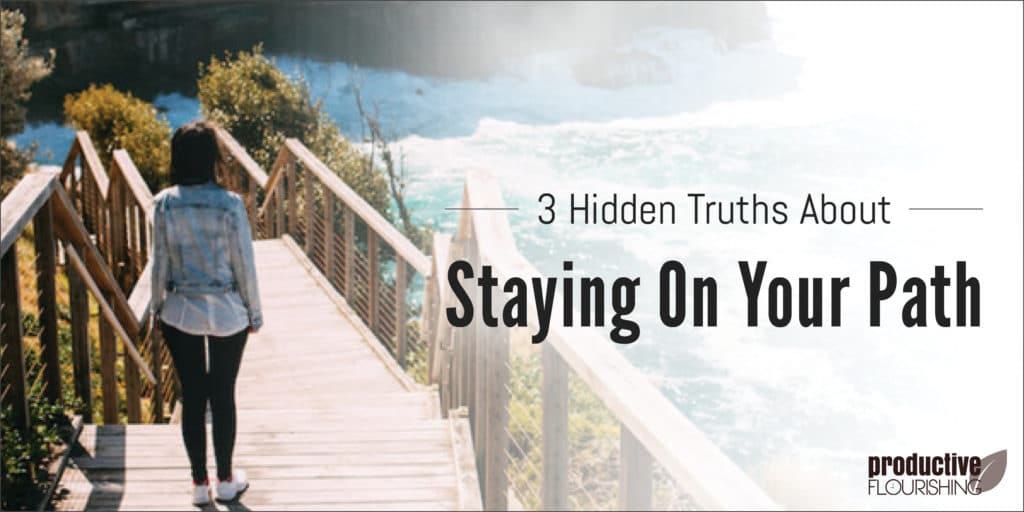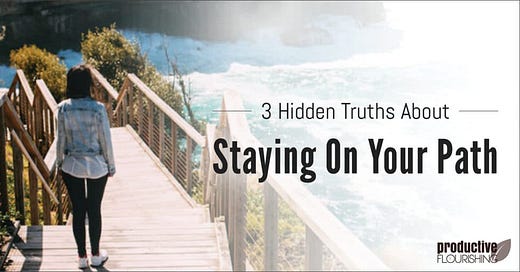3 Hidden Truths About Staying On Your Path

I was reading Ego Is the Enemy over the weekend and this passage jumped out at me:
“Only you know the race you’re running. That is, unless your ego decides the only way you have value is if you’re better than, have more than, everyone everywhere. More urgently, each one of us has a unique potential and purpose; that means that we’re the only ones who can evaluate and set the terms of our lives. Far too often, we look at other people to make their approval the standard we feel compelled to meet, and as a result, squander our very potential and purpose.
According to Seneca, the Greek word euthymia is one we should think of often: it is the sense of our own path and how to stay on it without getting distracted by all the others that intersect it. In other words, it’s not about beating the other guy. It’s not about having more than others. It’s about being who you are, and being as good as possible at it, without succumbing to all the things that draw you away from it. It’s about where you set out to go.”
Many books have been filled with counsel on finding your path; far fewer have shed much light on the difficulty of staying on your path. That’s odd, for staying on your path can often be harder than finding it. Here’s why:
We have a tendency to make up for “lost” time when we weren’t on the path, and the easiest way to make up for that lost time is to appropriate the given markers of success in our culture. We might be comfortable marching to the beat of our own drum in our daily lives, but the announcement of a reunion is all it takes to threaten our comfort with our uniqueness. Better to be rich, hot, and successful than off the beaten path doing you. The problem is that it’s easy for the pursuit and maintenance of those external markers to become our chief focus; keeping up with, nay, beating the Joneses is a full-time endeavor. (Note: who’s to say that “lost” time wasn’t just time leading you where you needed to be?)
We are continually creating our path, and the further we walk down the unique path we’re creating, the harder it can be for us to understand, let alone explain to others. In moments of fear, insecurity, and bewilderment, we want to reach for something familiar. That which is familiar to us is probably not the greatest possibility we can create and, quite likely, isn’t our path.
Success often comes as a byproduct of walking our path, at the same time that there are plenty of unhelpful starving-artist / unsung-hero / obscure-genius stories that trigger the “sell out” warning. So we push away the things that may best help us happily stay on the path, or we think that the path we’re on (that’s legitimately the right one) is wrong because of stories that tell us that good people can’t win.
In an ideal world, there’d be an easy, 7-step formula to find and stay on your path. Alas, we don’t live in that world, and our history is replete with stories of people who found their path but veered from it to their own suffering or ruin. All we can do is continually assess which of the forks in the road best lead us the way we want to go, using our potential, priorities, and purpose as the compass rather than the easier-to-understand destinations that are laid out in front of us. We may never know if the paths we choose are the right ones, but we can at least know that they were our choices.




